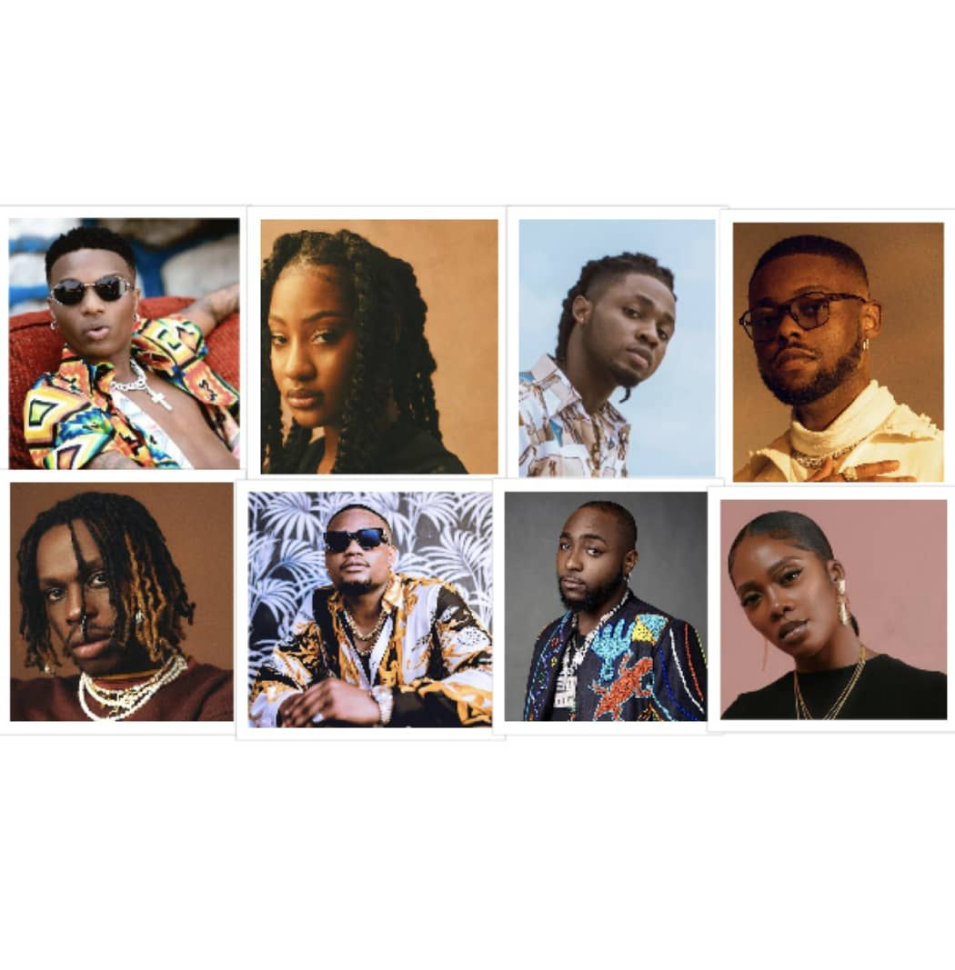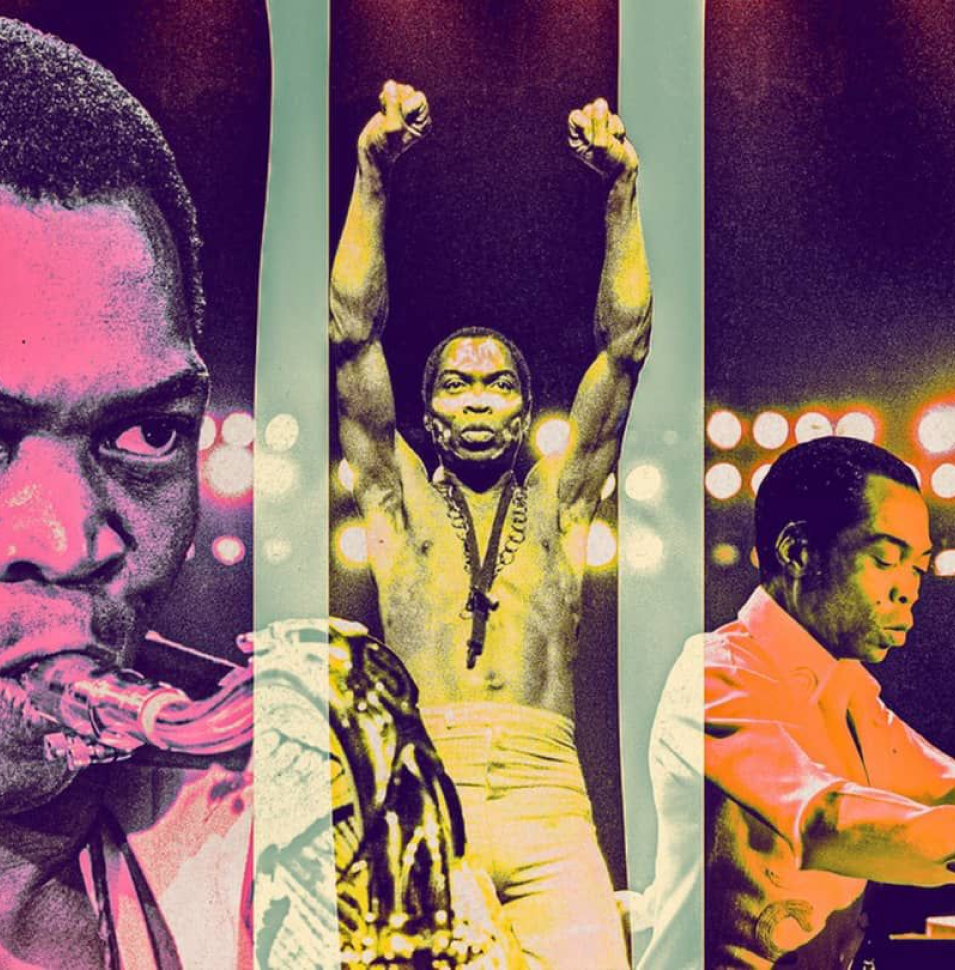
These are two different genres of music that most people mistakenly see as one and the same. Although they are both interwoven—since they come from the same region and have similar rhythms—time and date have classified them as two different genres of music.
Afrobeat (also known as Afrofunk) is a Nigerian music genre that involves the combination of West African musical styles that originate mainly from Nigeria such as the traditional Yoruba, Igbo and few other Nigerian tribes music and highlife, with few African blends, American funk, jazz and soul influences. It also focuses on chanted vocals, complex intersecting rhythms and percussion. The style was pioneered in the 1960s by Nigerian multi-instrumentalist and bandleader Fela Kuti, who is most known for popularizing the style both within and outside Nigeria. At the height of his popularity, he was referred to as one of Africa’s most challenging and charismatic music performers.
Afrobeats, on the other hand, is a term used to describe popular music from West Africa and the diaspora, which initially developed in Nigeria, Ghana, and the UK in the 2000s and 2010s. Afrobeats is less of a style per se, and more of a descriptor for the fusion of sounds flowing majorly out of Nigeria. Genres such as hip life, jùjú music, highlife and Naija beats, among others, were amalgamated under the “Afrobeats” umbrella.
HISTORY OF AFROBEAT AND AFROBEATS
AFROBEAT
Like it is often said, if you don’t know where you’re coming from, you won’t know where you’re going to.

Afrobeat evolved in Nigeria in the late 1960s by Fela Anikulapo Kuti, (born Olufela Olusegun Oludotun) who, with drummer Tony Allen, experimented with different contemporary music of that time. Afrobeat was influenced by a combination of different genres, such as highlife, fuji, and jùjú, as well as few vocal traditions, rhythm and instruments.
In 1969, Kuti and his band went on a trip to the US and met a woman named Sandra Smith, a singer and former Black Panther. Sandra Smith (now known as Sandra Akanke Isidore) introduced Kuti to many writings of activists, such as Martin Luther King Jr, Angela Davis, Jesse Jackson and, his biggest influence of all, Malcolm X.
On staying at Smith’s house and spending so much time with her, Kuti started to re-evaluate his music genre. That was when he realized that he was not playing African music. From that day forward, Kuti changed his sound and the message behind his music.
Upon arriving in Nigeria, Kuti had also changed the name of his group to “Africa ’70”. The new sound hailed from a club he established, called the Afrika Shrine. The band maintained a five-year residency at the Afrika Shrine from 1970 to 1975, while Afrobeat thrived among Nigerian youths. Another influential pioneer of Afrobeat was Ray Stephen Oche, a Nigerian musician touring from Paris, France, with his Matumbo orchestra in the 1970s.
As the genre spread throughout the African continent, many bands took up the style. The recordings of these bands and their songs were rarely heard or exported outside the originating countries, but many can now be found in compilation albums and CDs from specialist record shops.
AFROBEATS
Styles of music that make up Afrobeats largely began sometime in the late 90s and early mid-2000s. With the launching of MTV Base Africa in 2005, West Africa was given a large platform through which artistes could grow. Artistes such as MI Abaga, Naeto C and Sarkodie were among the first to take advantage of this. However, most of the artistes were merely making interpretations of American hip hop and R&B. Prior to this, groups like Trybesmen, Plantashun Boiz and The Remedies were early pioneers that fused modern American influences from hip-hop and R&B with local melodies. While this allowed them to build local audiences, it blocked them from a wider platform due to the language barriers in place.
However, it wasn’t until the launch of Choice FM’s New Afrobeats Radio Show, birthed and presented by DJ Abrantee in April 2011, that the genre gained traction and saw Afrobeats trending for the first time in history. The launch of the show gained popularity and provided a launch pad for both UK-based and African artistes to submit songs for playlist consideration. Abrantee used his daytime show to test daytime play of Afrobeats. Some of the first Afrobeats songs to be playlisted on daytime radio across the UK were Mista Silva’s “Boom Boom Tah”, May7ve’s “Ten Ten”, D’Banj’s “Oliver Twist” and Moelogo’s “Pangolo” in March 2012. P-Square released “Chop My Money” (Remix) alongside popular Senegalese-American artiste Akon in 2012.
“Oliver Twist”, released online by Nigerian artiste D’banj in the summer of 2011, charted at number 9 on the UK Singles Chart in 2012—making him the first Afrobeats artiste to make it to the top 10 in the UK, and number 2 in the UK R&B Charts. In 2012, P-Square remixed their 2009 hit single ‘E No Easy’ with Matt Houston, and it became the first Afrobeats song to reach top 5 on the French SNEP music chart, as well as top 10 on the Belgian Ultratop music chart, going on for 29 weeks and 16 weeks respectively. The song was the first Afrobeats summer hit in France, which in turn boosted Afrobeats’ visibility in the francophone countries. Mr Eazi, in an interview with Sway in the Morning in 2019, later credited D’banj for helping encourage Nigerians and other Africans to embrace their accents and music, rather than looking outwards and trying to emulate American accents and music.
In recent times, most popular music awards across the globe have included Afrobeats in their genre categories. Hence, we hope and look forward to seeing the Grammy Awards do the same, because Afrobeats is presently more popular and has huge listeners than genres like reggae music, country music and the like.
